Oil and gas industry leaders called balance, realism, collaboration, and consensus critical for easing the world through the energy transition.
Speaking during Gastech on 17 September, Chevron CEO Mike Wirth said the industry faces the challenge of providing energy to a growing population but doing so in a lower-carbon fashion.
“We face a choice. We can double down on the either-or approach that dominates today's discourse, which too often puts people and solutions against each other, or we can evolve for an all-in approach that recognizes many solutions are needed,” he said.
Economic prosperity, energy security, and environmental protection is an achievable goal, he said, but it requires working together.
“We can make more progress through collaboration and consensus than through polarization and partisanship,” he said, noting energy choices will impact geopolitics, national economies, and the lives of billions of people. “These choices should be informed by realistic science and impartial data, untainted by advocacy agendas. They need to reflect the real world, the one we live in today, and they should respect the simple and universal human desire for a better quality of life.”
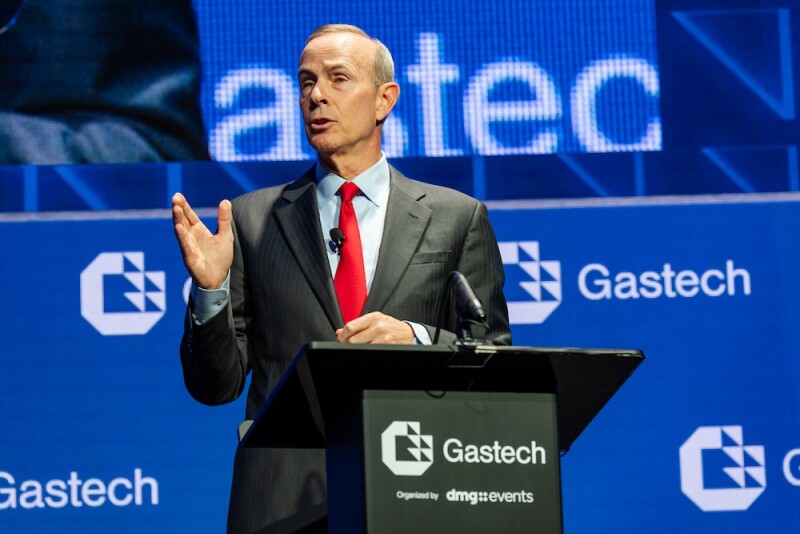
In short, Wirth said, there needs to be a more balanced conversation about the future of energy, one that’s more optimistic than the energy conversation of today. And that balanced conversation should start from the understanding that “we all want a lower-carbon future, a recognition of progress is being made, and an understanding that the energy transition requires unprecedented innovation and collaboration,” he added.
He cited a recent McKinsey & Company report that, using US Energy Information Administration data, calculated that switching from coal to gas in US power generation reduced carbon emissions by more than 500 million metric tons, an amount he said was more than double the reduction from all additions of wind and solar power over the past 15 years.
“The case for natural gas is so strong that only politics can get in the way,” Wirth said.
The Biden administration’s pause on LNG permitting elevated politics over progress, he said. The ramifications of the pause include increasing energy costs by removing potential supply from the market, threatening the reliable supply of LNG, and slowing the transition from coal to natural gas, which means more emissions not less, he added.
Critical Impacts
During a 17 September ministerial panel, Geoffrey Pyatt, assistant secretary of state for energy resources for the US Department of State, said the choices pivotal countries like Egypt, India, Nigeria, and Türkiye make about energy in the face of growing population and demand for energy will have a critical impact on how the world collectively meets climate goals.

As the world works through the energy transition, he said, the biggest single question in the global climate story “is not what's going to happen with energy transition here in the United States or in the other G7 countries in Europe, because that pathway is already set. The big question is, ‘What happens in these pivotal states?’”
H.E Karim Badawi, Egypt’s minister of petroleum and mineral resources, said collaboration is a key for the country to be able to unlock its full potential as a gateway for energy. The infrastructure is in place and the resources are there, he said.
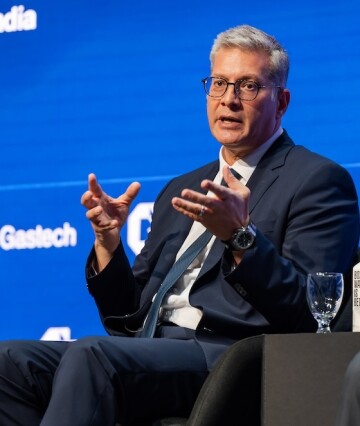
“We're really leveraging on a few different levers to promote that. The first part is very close engagement with our partners,” he said, adding Egypt aims to “re-energize” exploration and development in the country and enable and incentivize its regional partners to unlock the full potential in their concessions, with the country serving as a gas export hub.
He is a “firm believer” that technology will enable the country to unlock that potential, so Egypt is working with its partners to leverage technology that can maximize production from existing fields and accelerate exploration activity.
H.E. Shri Hardeep Singh Puri, India’s honorable minister of petroleum and natural gas, said the country is doing “better on the transition front” than he would have expected a decade ago.
“But in order to be able to successfully navigate that transition, you also have to survive the present,” he said.
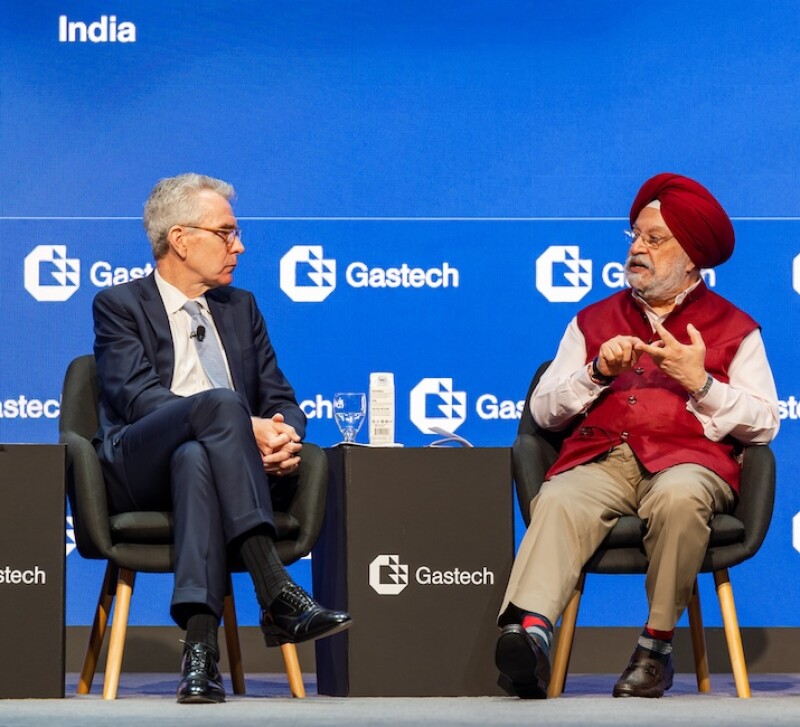
He said India’s choice about the energy transition has been made.
“We will step on the gas” and work on green hydrogen and manufacture electrolyzers, he said. “We are collaborating on technology to make the change. We are doing whatever we can, whether it comes to sustainable aviation fuel and all the others. We make the choice. But equally, I think this narrative has to be anchored in the real world.”
He said that means that the alternative energy supply must be available globally.
“We've got to make it available, because all the transition you make here will be undermined in a very profound way unless we're able to ensure that balance,” he said.
Rt Hon. Ekperikpe Ekpo, Nigeria’s minister of state for petroleum resources (gas), said the energy transition is a concern for every nation and that his country has embarked on initiatives intended to cushion the effects of the transition.
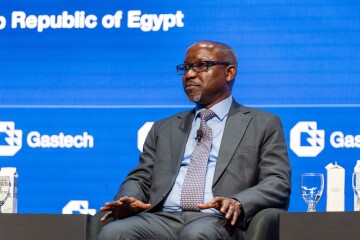
One of those is a legislative framework established in 2021 to encourage gas production, he said.
“Before 2020, 2021, gas was not given the attention it is being given now,” he said. “Today we talk about gas, and Nigeria is one of the countries that exports gas to other countries.”
H.E. Alparslan Bayraktar, minister of energy and natural resources for Türkiye, noted his country is a growing market that imports about two-thirds of its primary energy even as it strives to meet its own energy transition goals.
As such, Türkiye is “in a position that we cannot say no to any alternative solution or any alternative energy resources coming from any direction,” he said.
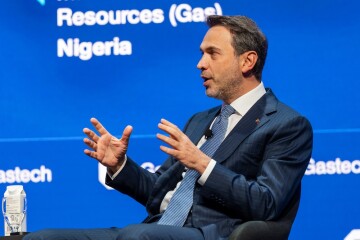
The country is developing a “long-term ambitious upstream” program, he said, while also investing heavily in gas infrastructure. That investment includes regasification capacity to enable the country to bring more gas than it needs into its borders and help Türkiye achieve its goal of becoming a gas transporter, he said.
“Türkiye is the fourth-largest gas market in the continental Europe, around 50 Bcm/year, and with this infrastructure, with the neighboring countries, and also reliable supplies from the other parts of the world, we can bring almost 75 Bcm of gas to the Turkish market. And this excess 25 Bcm, we can easily export to European market interests,” he said.
That will require interconnection capacities between neighboring countries.
“We believe that if we are able to strike a right balance between producer countries, transporter countries, and consumer countries, we are going to be able to have a long-term and successful energy cooperation,” he said. And the offering? A “Turkish blend.”


